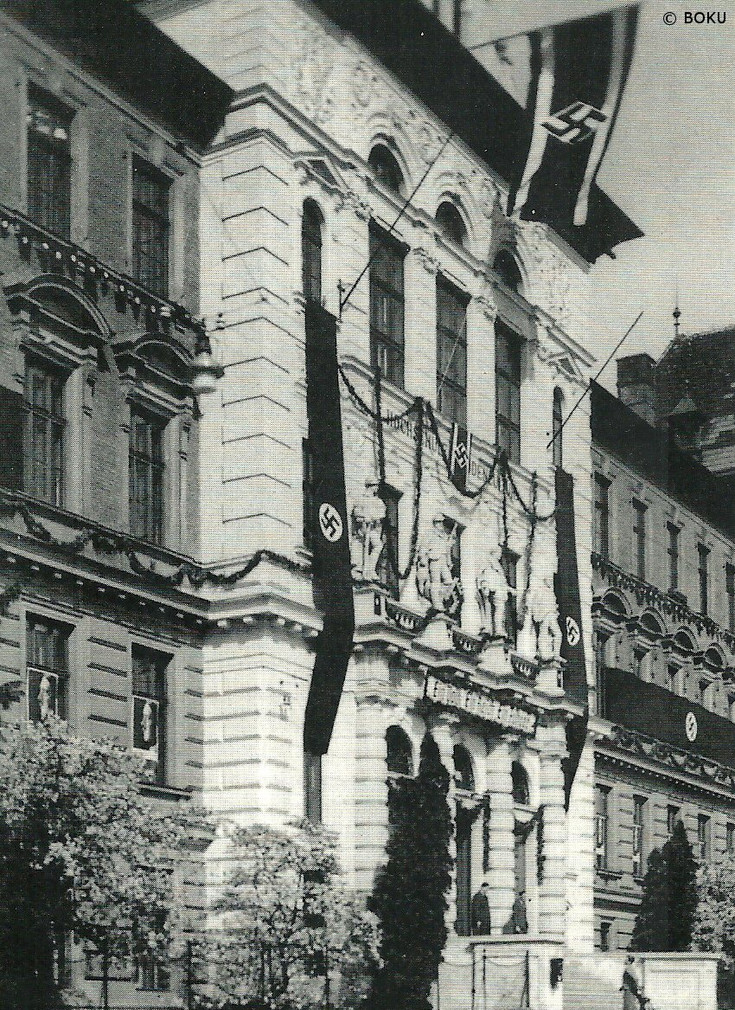The University during the Nazi Regime

The National Socialist takeover at the BOKU was characterized by a loss of power of the professors and an increase in power for the lecture body, unseen anywhere else in Austria. Just as was the case at other Austrian universities, the forcible coordination process took only a few weeks; the bureaucratic processing of cleansing measures in individual cases lasted until the winter semester 1938/39.
After the takeover, several professors were relieved of their position, in most cases the positions were given back to those lecturers who had lost their positions as National Socialists in 1934.
The entire university was organized based on the Führer principle. This also implied the end of a free Rector election. Rector Dr. Emmerich Zederbauer was relieved of his position on March 14th, 1938 (and was retired by the end of May 1938) and deported to Dachau in April 1938 already. Half a year later, he was released as a physically and mentally broken man. An even more horrible fate awaited Prof. Dr. Hans Karl Zessner-Spitzenberg. Because of internal injuries caused by physical abuse of the guards, he died in the sickbay of the concentration camp Dachau. Seven more professors fell victim to the National Socialist cleansing, and ten lecturers lost their venia legend.
Those professors and lecturers who were relieved of their positions were replaced by politically reliable scientists.
With regards to content, two specializations were defined for the work at the University of Natural Resources: the servicing of the Southeast and special tasks for alpine agriculture and forestry. Due to the war, research saw a marked upgrading in comparison to teaching for the first time in BOKU’s history. Five external institutes were established during the years of the war.
The adaptation to the Reich-German curricula happened during the term of Rector Prof. Porsch (until January 31st, 1941).
The study operations were reconstructed several times (trimester regulation, program duration, questions related to professional titles, …). The number of students decreased. On one hand, this was due to the study prohibition for Jewish students. On the other hand, a considerable part of the decrease can also be related to the conscription call to the Wehrmacht.
The two students’ fraternities at BOKU (Silvania, Hubertus) and the Catholic academic fraternity “Pflug” (Plough) were closed and replaced by fellowships.
The evacuation and dislocation of institutions into the west of Austria made the facility in Vienna seem almost abandoned in 1944 and 1945.
Already on April 24th 1945 the first seven professors met for their first college meeting under the chairmanship of Prof. Steden. The following problems had to be urgently solved: the (re-)establishment of the academic administration, a stock-taking of the staff and the protection of the buildings, rooms, and facilities.
